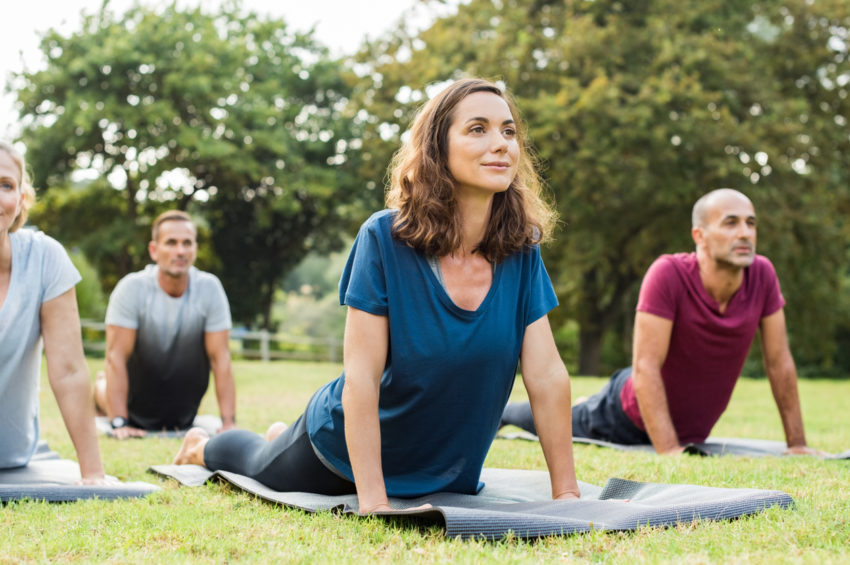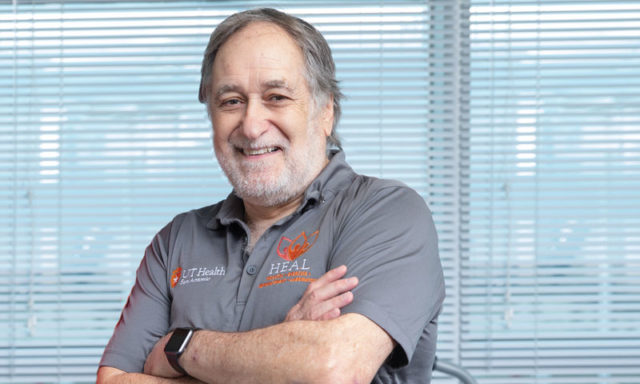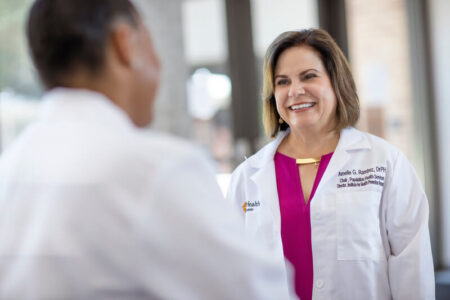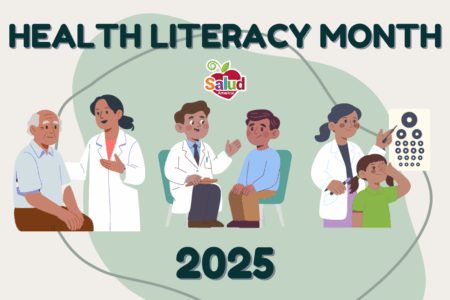
Share On Social!
Life after cancer is not easy.
Survivors face many concerns. Will my cancer come back? Have my family and work relationships changed? What do I eat and how should I get exercise? What happens if I were to die?
Healthcare providers rarely focus on all these areas, together.
Dr. Daniel Carlos Hughes and his research team are out to change that.
Hughes, a researcher at the Institute for Health Promotion Research at UT Health San Antonio, the team behind Salud America!, is leading a new pilot intervention that takes a holistic approach to improve cancer survivors’ quality of life, thanks to $50,000 in funding from the Mays Cancer Center at UT Health San Antonio and SA Cancer Council Circle of Hope.

Hughes and his team have designed a holistic intervention to optimize physical, mental, and spiritual aspects of quality of life for any adult cancer survivor who seeks to enter the program.
“Exercise is a part of it, but it’s only one part of it,” said Hughes. “The intervention also includes, diet, spirituality, meditation, yoga, and tailored psycho-social support.”
Hughes and his team—a trans-disciplinary mix of researchers, including Dr. Alexis Ortiz, Chair of the Department of Physical Therapy, an advisory group of cancer survivors, and committed doctoral students—will recruit 30 study subjects this summer from greater San Antonio and South Texas. They will use a telemedicine platform deliver the tailored intervention and communicate continuously with study participants, Ortiz said.
Subjects will undergo a 16-week intervention including:
- Yoga-based regimen with meditation
- Aerobic exercise program (if desired)
- Diet guidance
- Psycho-social support to increase efficacy in integrating health-enhancing behaviors
Subjects will return six months later for repeat assessments to gauge the intervention’s long-term effectiveness.
“We will assess physical function, blood biomarkers and mental health through the intervention to see the biological and mental benefits of engaging in our intervention,” Ortiz said.
The researchers will tailor intervention plans to each subject’s individual motivational profile.
Any adult who has had a cancer diagnosis and is in any stage of treatment can participate.
“Cancer is beginning to be thought of as more of a chronic disease,” Hughes said. “What we are hoping here is as we learn how to apply this better it will become more mainstream, and ultimately primary care providers or oncologists can reach out to people like us or make it part of their own practice.”
Update 7/9/20: Read a progress report on Dr. Hughes’ project!
Read more about Latino cancer news and stories. And try our new cookbook, Cancer-Fighting Recipes, Restaurants & Markets, which aims to help people reduce their cancer risk with recipes based on an anti-inflammatory diet, developed by a chef and a research team led by Dr. Amelie G. Ramirez, leader of Salud America! at UT Health San Antonio.
Explore More:
AccessBy The Numbers
142
Percent
Expected rise in Latino cancer cases in coming years



